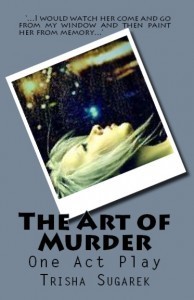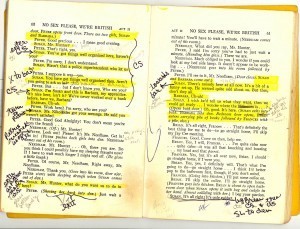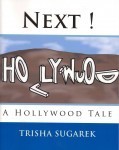How To Write A Stage Play...12 Tips
Last week I was telling you about an idea for a stage play that a friend/colleague in theatre offered me, many years ago. How "The Art of Murder" came to be. I am always  asked 'how can you be so prolific?', 'how do you write so many plays?' 'where do you get your ideas?' and so forth.
asked 'how can you be so prolific?', 'how do you write so many plays?' 'where do you get your ideas?' and so forth.
So I thought what a perfect time to give my readers twelve tips on writing their first stage play. After all, 45 play scripts ago and and seventeen years earlier I began writing my first script.
TWELVE TIPS TO GET YOU STARTED (Part 3)
1. Format is very important. So buy a play script or go on line to check out a format. If you submit your new play to anyone they will not read it if it is not in a proper format. There are also softwares out there that offer auto-format. sample.playwrite.format (here is a two page format)
2. Each page represents approximately one minute of time on stage. So if you have a play that is 200 pages long, that won't work. Audiences aren't going to sit for more than one and a half hours unless you are providing a circus, a fire drill, sex, and an earthquake. Audiences are even reluctant to sit through "The Iceman Cometh" a classic by Eugene O'Neill. It runs close to 3 hours.You should keep your full length script to about 100 pages which equals 1.6 hours of stage time. For a one act divide that by 2. For a ten minute play your script should be from 10-15 pages.
3. Leave lots of white space. One day when your play is being produced, actors will need a place to make notes in the script during rehearsal. This is a sample of an actor's working script.  An actor usually 'highlights' their lines and writes the director's blocking in the margins.
An actor usually 'highlights' their lines and writes the director's blocking in the margins.
4. The blocking (in italics) is where you give the actors instructions on when and where to move. But, keep it short and sweet. Remember you will have a director who has their own ideas of where he/she wants their actors to be.
5. Remember your script has to work on a stage. If your story takes place in more than one locale, you have to be aware of the logistics of a 'set' change. So keep it simple to start.
6. Now here's the, sometimes, hard part: everything you want the audience to know is conveyed in the dialogue. Unlike a short story or a novel, where you can write as much description as you'd like to, a play script has none of that. NO description.
7. Always, always tell the reader/director/actor how many people are in the cast and their gender and ages. So in the beginning of your script you will have a 'character list' stating the character's name, who they are germane to the story, and their age and physical appearance. sample.charac.list.page
8. If you write a script with six to eight to twelve men in it, YOU ARE DOOMED. Men are extremely hard to cast (they're just not out there and if they are, their jobs and families prevent them from auditioning) and so most directors are looking for a play with a reasonably small cast with more women than men. Under six to eight actors and two-thirds, women.
9. If this is your first play writing attempt, write about something you know. Maybe a family story. One of my first plays was about my days in Hollywood as an actor. 
10. Your dialogue is EVERYTHING. You will be judged on IT alone. So try to be original, snappy, and funny. Even the most dramatic, tragic play has pathos.
11. The format for a stage play is entirely different from a screenplay. Don't confuse the two. With a stage play, you are limited to what can be physically accomplished on a stage. With a screenplay you can have several locations, interior and exterior....pretty much whatever the budget will allow.
12. Send your finished script out...then send it out again and .....again. Most community theatres are receptive to receiving scripts. Don't get discouraged! You will get rejected. I wish you could see my 'rejection letter' file! LOL KEEP SENDING IT OUT!!
Click here to read how one of my plays was conceived.
~~~~~~~~~~~~~~~~~~~~~~~~~~~~~~~~~~~~~~~~~~~~~~~~~~~~~~~~~~~~~~~~~~~~~~~~~~~~~~~~~~~~~~~~~~~~~~~~~~~~~
DON'T MISS UPCOMING BLOGS featuring INTERVIEWS with other best-selling AUTHORS! "The Writer's Corner"
I have had a wonderful response from other authors and will feature an interview with one once a month . These authors have already responded and you can read their interviews by clicking on their name: Ann Purser, Susan Elia MacNeal, Karen Robards, Mark Childress, Rhys Bowen, Dean Koontz, Patrick Taylor, Sheryl Woods, Jo-Ann Mapson, Jeffrey Deaver, Cathy Lamb, Elizabeth Gilbert, Amber Winckler, Raymond Benson, Tasha Alexander, Andrew Grant, Heidi Jon Schmidt, Robert McCammon, Sue Grafton, Walter Mosley, Nora Roberts, and many others.
So come along with me; we shall sneak into these writers' special places, be a fly on the wall and watch them create! Sue Grafton was August's author with a bonus later in the month featuring Cathy Lamb. September will feature Tasha Alexander. Jeffrey Deaver is November's author and slick mystery writer, Andrew Grant will join us this winter. Loretta Chase will be featured later this year. Raymond Benson is my January author.
To receive my posts sign up for my  Go to the home page; On the right side you'll see a box where you can enter your email address. Click on "join my blog". You need to confirm in an email from 'Writer at Play' . Thanks!
Go to the home page; On the right side you'll see a box where you can enter your email address. Click on "join my blog". You need to confirm in an email from 'Writer at Play' . Thanks!
~~~~~~~~~~~~~~~~~~~~~~~~~~~~~~~~~~~~~~~~~~~~~~~~~~~~~~~~~~~~~~~~~~~~~~~~~~~~~~~~~~~~~~~~~~~~~~~~~~~~



